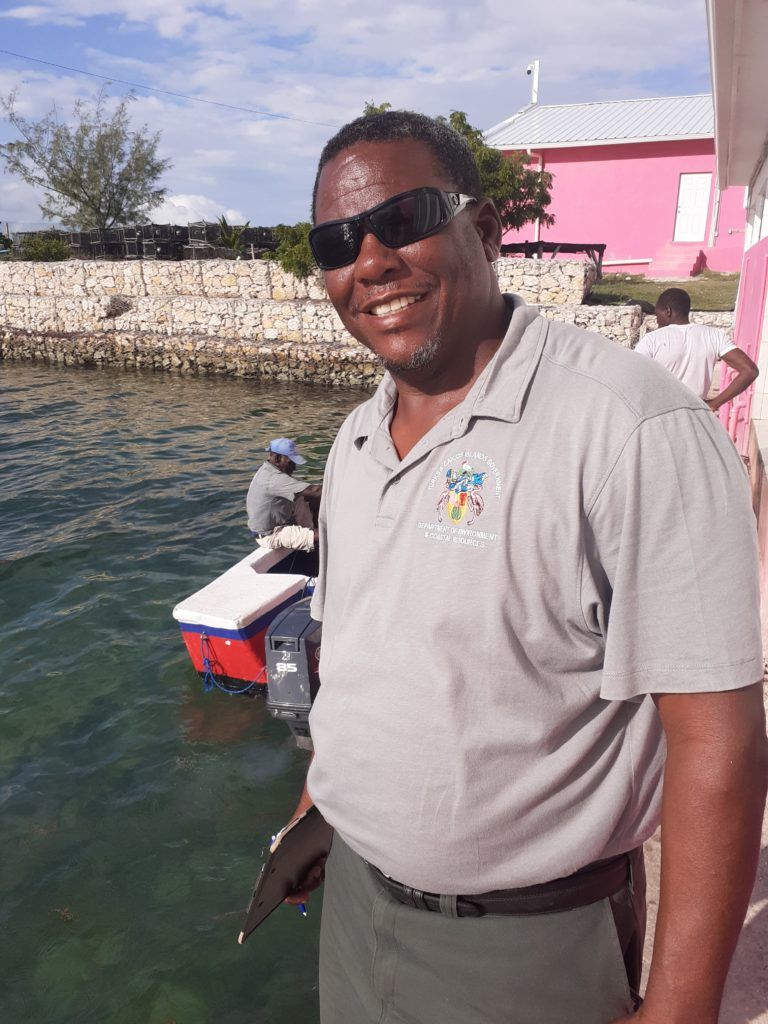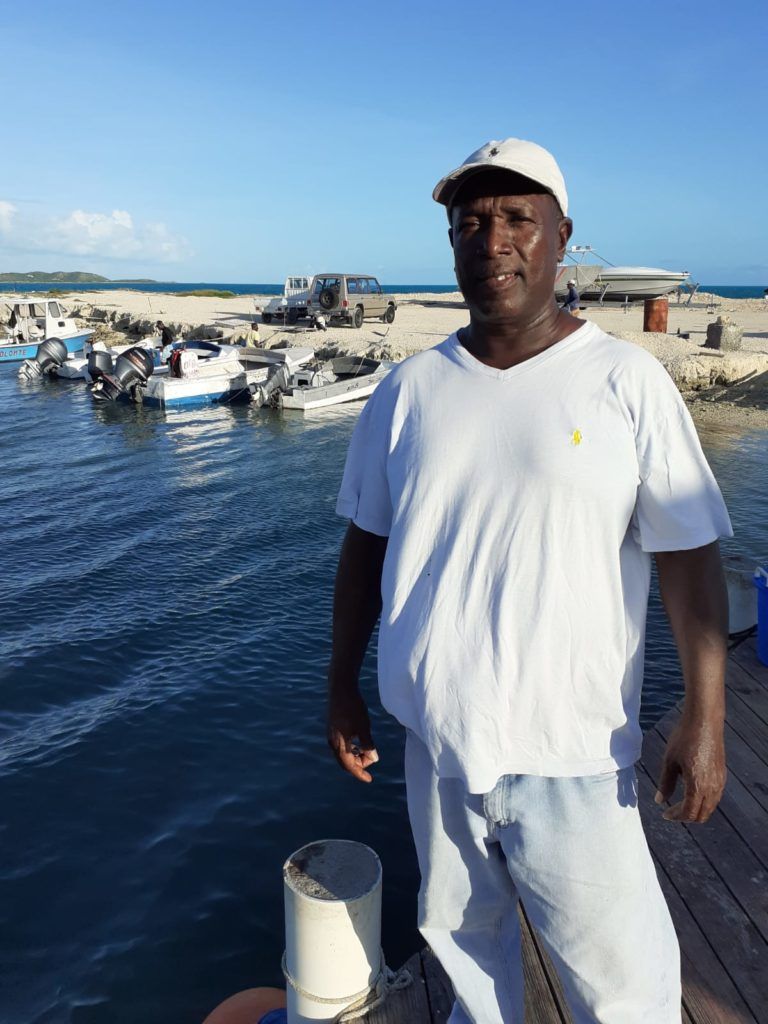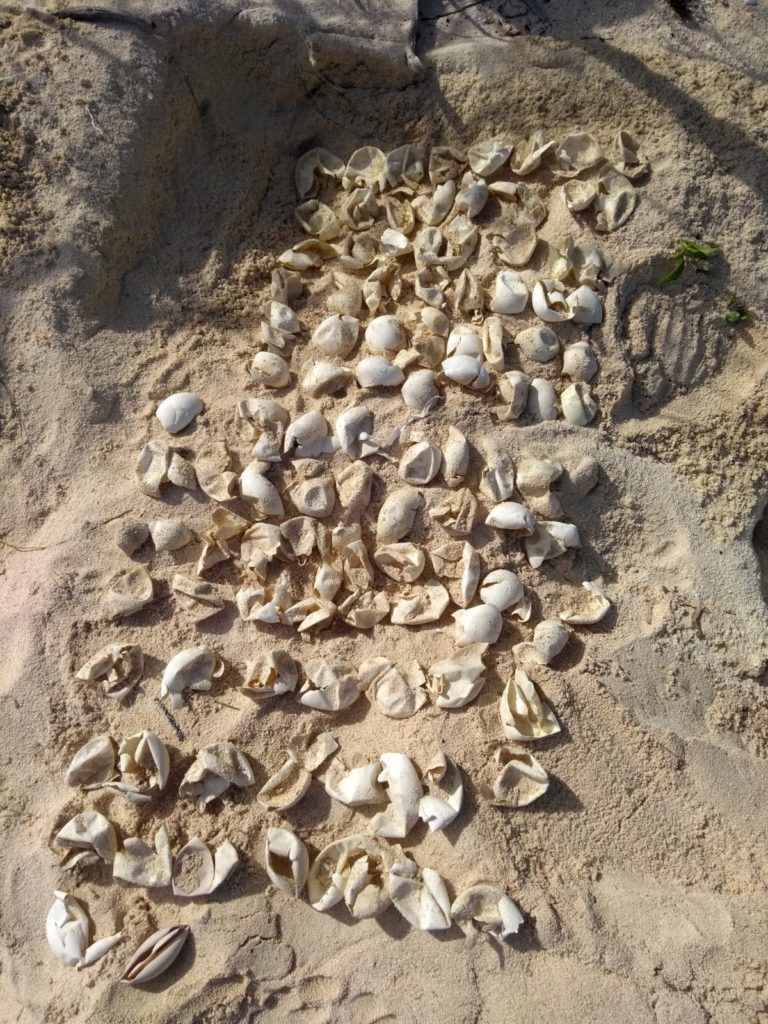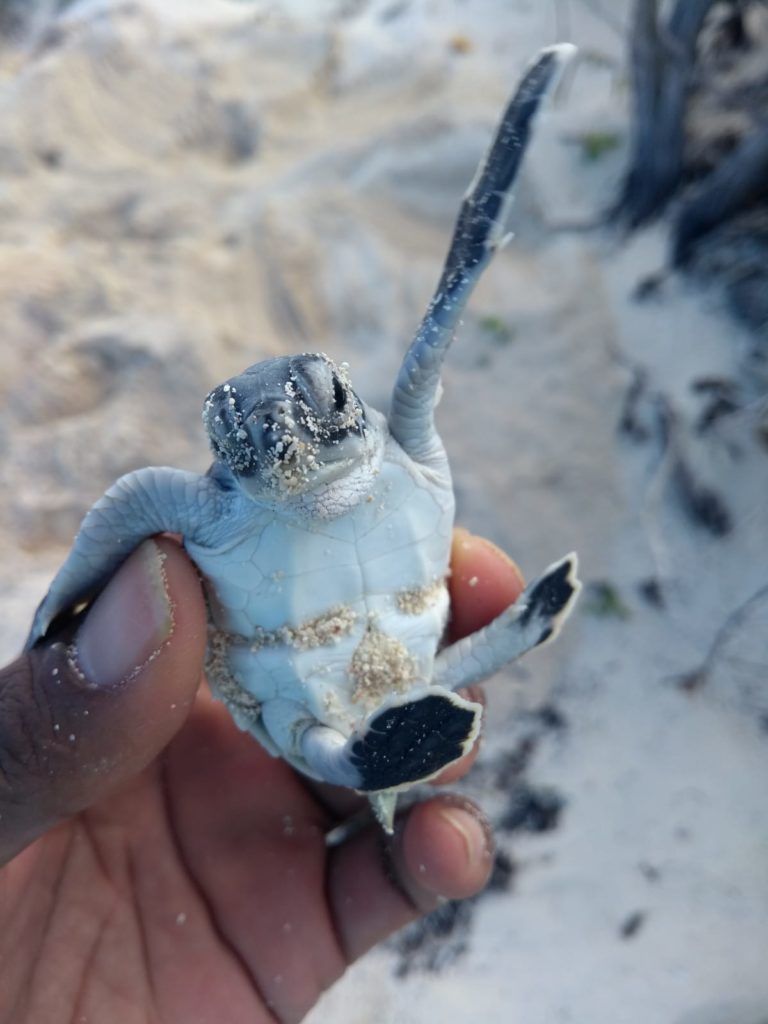Working with fishermen to protect sea turtles in the Caribbean
Protecting endangered and threatened species can be a complex process. Many animals are declining because of over-consumption that causes their numbers to crash. While bans to stop consumption can help in emergency situations, they are hard to enforce and if not needed, can worsen the situation by making illegal consumption impossible to monitor or manage in addition to marginalising coastal communities.
Caribbean communities have always been reliant on local species that they’ve hunted or fished, and these practices still have either subsistence or cultural importance to the people that live there. However, use must be sustainable, and measures have to be put in place that ensure the species survive and thrive, whilst the communities can still enjoy the resources. PTES is supporting the Marine Conservation Society’s (MCS) work to ensure that the Turks and Caicos Islands (TCI) safeguards the future of its sea turtle populations, and the livelihoods of its fishermen.
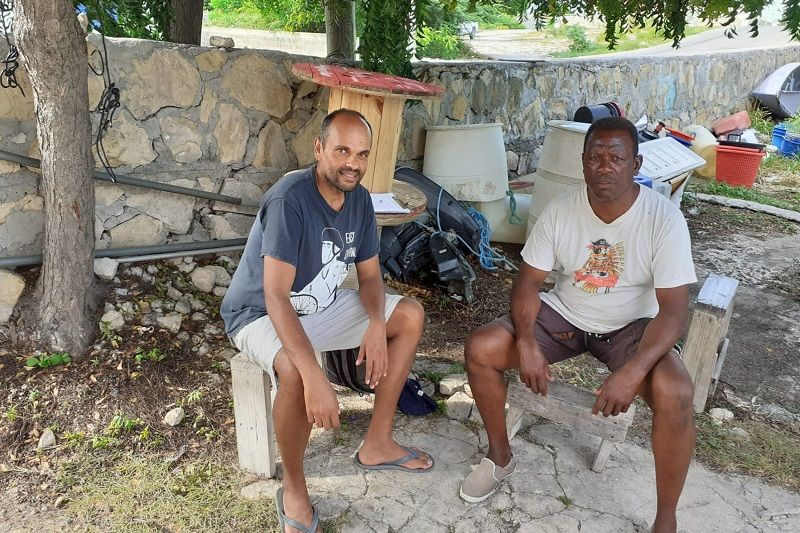
Not too big, not too small
Amdeep Sanghera, MCS’s UK Overseas Territories Conservation Officer, headed out to the Caribbean in November. He had a couple of important jobs to carry out whilst there. Firstly he interviewed people involved in the fisheries industry, from fishermen, to restaurant owners, enforcement officers and fish processing plant staff. Amdeep wants to find out how well recent legislation to limit the size of turtles being caught is being adhered to. The regulations, which were adopted by the government in 2014, were designed with extensive help from the fishermen. They prohibit catching sea turtles with shells larger than 60cm or smaller than 45cm. Restricting the smallest and largest turtles safeguards big sub-adults, breeding adults and small juveniles. There is also a closed season for hawksbill turtles during their 8 month breeding season. Amdeep spoke to community members involved in the fisheries process to understand if the new rules are working for everyone.
Tagging turtles
First up was Gilbert Jennings, a South Caicos born fisherman whose turtle catching skills are legendary throughout TCI. Gilbert and his cousin Dave Clare have been invaluable to the project, working with MCS since 2004 to help catch, flipper-tag and satellite tag turtles for research. The findings have been crucial in providing insights into the life-histories of sea turtles, in particular the enigmatic sub-adults or teenage individuals, who spend all their time at sea and which we know very little about.
Fishing is hard work, and while Gilbert and Dave still fish for turtles, they are also starting to explore tourism opportunities. Gilbert says, I think the recent turtle laws are good for TCI. You got to protect the breeders, the big turtles. Tourists also want to see turtles too, so we have to protect them.
Tommy Phillips started out as the TCI Turtle Project assistant which then led him to being an enforcement officer for the Department of Environment and Coastal Resources (DECR). Tommy explains, Before the new turtle laws came in, fishermen would catch large turtles. But with the new regulations, that doesn’t happen no more. People understand you have to protect the breeders.
Hawksbills are critically endangered
Jean-Claude Desrosiers is the manager of a private South Caicos seafood processing plant that mostly processes lucrative queen conch and spiny lobster fisheries for export. During the key data collection period between 2008 to 2010, Jean- Claude was part of an informal stakeholder network. They’d let Amdeep know whenever fishers landed turtles near his plant. Often these would be critically-endangered hawksbills, with some of these captures being adult turtles. Catching hawksbills is now banned from August to March. Encouragingly, Jean Claude reports, Fishermen are changing, they’re not bringing in the number of turtles like before. I hardly see turtles being caught today!
A positive shift
Amdeep senses change has been taking place with the turtle fishery. At The School for Field Studies in South Caicos, Clarence Stringer, Marine Operations Coordinator explains that he’s seeing a positive shift in fishermen’s attitude towards turtle fisheries. They are now much more conscious of how their actions affect the turtle population. Clarence is wearing a ‘Size Matters in the TCI’ t- shirt, printed with support of PTES and distributed for free when the new regulations came into force in 2014. The back of the shirts explain the new regulations in a simple and engaging way – a brilliant tool to highlight the message. When it comes to turtle fishing, Amdeep confirms that the mantra of the trip was “not too big, not too small” – it’s really embedded in the consciousness of the fishing communities.
Frankie Bain is the manager of a private seafood processing plant in Providenciales. He’s also part of the informal network Amdeep set up, and during the project’s formative years Frankie, like Jean-Claude, would always alert Amdeep when a fisher had landed a turtle. Frankie acknowledges that there’s a certain size turtle you can’t touch as they’re the breeders. The fishery officers make sure this law is enforced and are stopping the capture of large turtles.
New breeding opportunities
Amdeep also carried out nesting beach surveys to see if they are reflecting any increase in nesting as a result of the new regulations. Travelling out to uninhabited East Caicos, Amdeep was delighted to find evidence of significant green turtle nesting on the northern shores of this island where we haven’t seen it before. He even found a recently emerged nest and excavated it to determine its success. Out of 111 eggs laid, there were only three undeveloped eggs and one unhatched dead hatchling. That’s one very successful nest. All but one of the other hatchlings made it safely out of the nest – with one straggler – who was later released at sea.
It’s really encouraging to hear how much Turks and Caicos Islands fishing communities are aware of and care about the regulations they helped design. There’s still more to do and compliance isn’t 100%, with some larger turtles occasionally being landed. But the fishers’ willingness to engage, and adjust their traditional fishery is a very welcome result of years of extensive participatory research, community consultation, collaboration and painstaking hard work.
Thank you for helping us fund this research to protect sea turtles in the Caribbean.
If you’d like to support work like this, please donate or set up a direct debit today

